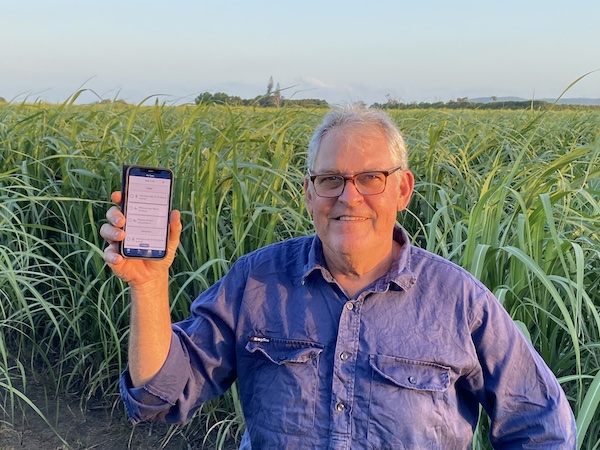Mater Private Hospital Townsville is rolling out a virtual heart rehabilitation program across North Queensland featuring an app that is able to boost cardiac rehabilitation participation rates.
Under the program, North Queensland patients recovering from heart events and procedures or living with heart disease are accessing rehabilitation care and monitoring from home, no matter where they live.
Patients have two video consultations a week with a specialist clinician complemented by the Cardihab digital cardiac rehabilitation platform and smartphone app developed by Queensland digital health company Cardihab.
The app tracks patients’ heart rate, blood pressure, steps walked and more. Healthcare workers can see and hear in real time, monitor the patient and get their response to exercise.
Cardihab CEO Helen Souris wants more government funding to help make it “a nationwide standard of care for cardiac rehabilitation”.
“Eighty per cent of people who should be receiving cardiac rehabilitation miss out because their area has no program, there is difficulty accessing it from rural areas, they can’t fit it in around work and there are long waiting lists,” Ms Souris said.
“It’s a real area of crisis. There are massive bottlenecks of people who can’t get access, but this works because people can do rehab from home using the app and telehealth.”
The program and app are free for Mater Townsville patients and patients of other hospitals in North Queensland who are members of health funds Medibank Private, nib or Queensland Country Health Fund.
“We’re working with Mater and hope to make it more accessible across all northern Queensland especially in regional and remote areas which don’t have the same access to rehabilitation as cities,” she said.
The Townsville hospital introduced the service for patients unable to attend face to face sessions due to distance or lack of transport. Mater exercise physiologist Shaun Whiley said participation rates for cardiac rehabilitation in regional areas had been low before the pilot trial.
The program started after Mr Whiley and the hospital’s allied health manager identified that many cardiac patients from areas outside Townsville would not stick to any sort of rehabilitation or care plan until their six-week consultation with a cardiologist.
“Rehabilitation is vitally important, not only because research suggests that those who do not rehabilitate following heart procedures have a higher chance of being rehospitalised, but so these people can return to their normal lives,” Mr Whiley said.
“Knowing that these sessions have given patients the confidence to return to normal following what can be, in many cases, very significant procedures is why cardiac rehabilitation is so important.
“Delivering virtual rehabilitation means (patients from) regional and remote communities do not have to drive two or three hours to access a clinician.
“Participants have been from Burdekin, Charters Towers, Ravenshoe and more. If anyone can’t access cardiac rehabilitation in their region, from Mackay to the Cape and west to the border, Mater is here.”
Sugar cane farmer Stephen Fabbro, pictured, who required heart surgery due to artery blockages, took part in the trial and said he was unlikely to have completed rehabilitation if it required driving to Townsville.
“The virtual rehabilitation team visited me after my surgery and mentioned the opportunity to complete rehabilitation virtually, loaded the applications on to my phone, and everything was good to go,” he said. “I’m back to working on the farm and performing the tasks that I was performing before the procedure thanks to this program.”
Cardihab’s care model was originally developed by the CSIRO. It enables clinicians to remotely deliver a scientifically validated, comprehensive cardiac rehabilitation program based on Australian guidelines.
Its secure cloud-based SaaS platform enables delivery of tailored rehabilitation care plans for patients who have had a cardiac event, and chronic cardiac care plans for secondary prevention.
Patients use the app to record progress through their rehab program, monitor symptoms, view educational materials, and receive motivational messages. Clinicians deliver counselling during phone calls supported by the clinical portal.
Ms Souris said Tasmanian public hospitals and some public hospitals in Victoria were also successfully using Cardihab.
“State governments have funded it there and it’s had incredible results. Governments are seeing it as a priority area but we need federal funding to make it a standard of care nationwide,” she said.
A recent clinical study of 204 patients offered cardiac rehabilitation post angioplasty by Queensland Cardiovascular Group found participation in cardiac rehabilitation improved from 21 per cent to 63 per cent when Cardihab rehabilitation was used instead of an in-person program.
Group director and lead author Dr John Rivers said in JMIR Cardio: “Cardiac rehabilitation reduces cardiovascular mortality and increases quality of life, but many people don’t participate because of geographic distance or lack of transport, time constraints as well as cultural, cost and psychological barriers.”
He said improved uptake of cardiac rehabilitation with Cardihab suggested a significant number of patients would benefit from the convenience and flexibility of a remotely delivered virtual program.
A randomised controlled trial in the journal Heart validated the app, demonstrating its model of care was clinically equivalent to normal care but it significantly improved patient uptake, adherence and completion of rehabilitation compared to traditional care.
Providers of Cardihab include Medibank, which uses it in its HeartHealthAtHome program, nib for its Honeysuckle Health digital health programs, Queensland Country Health for its care navigation service and Baker Heart and Diabetes Institute in various studies. WA Primary Health Alliance and Queensland Cardiovascular Group also use the app.



